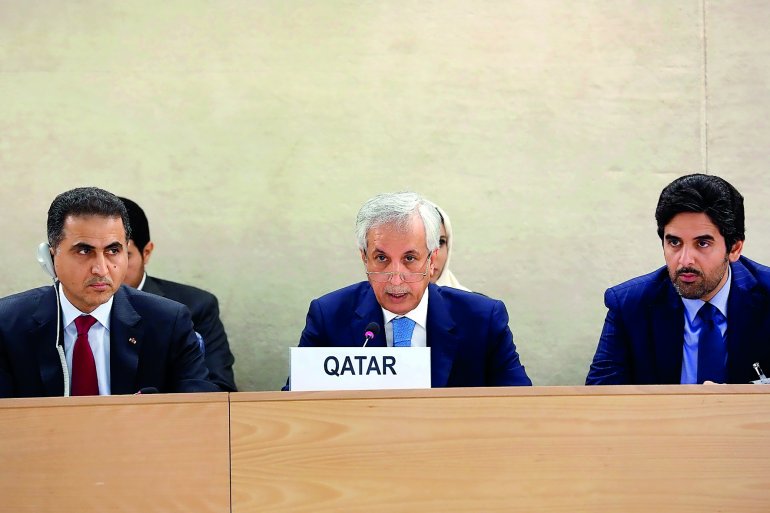September 20, 2019

On September 20, 2019, in a joint oral statement delivered before the Human Rights Council for the adoption of the outcome of Qatar’s Universal Periodic Review, a group of 9 NGOs expressed concern over the lack of endorsement of a range of recommendations of UN Member States related to the situation of migrant workers, stateless persons, and freedom of speech.
The statement, delivered by the Iraqi Development Organization, was supported by MENA Rights Group, Americans for Democracy & Human Rights in Bahrain, CIVICUS, Institute on Statelessness and Inclusion, the Global Campaign for Equal Nationality Rights, Rights Realization Centre, Access Now, and the Gulf Centre for Human Rights.
---
Mr President,
This statement enjoys the support of 8 NGOs working on Qatar.
We welcome Qatar’s positive response to 70% of the recommendations made, including on the independence of the judiciary, compliance of counterterrorism measures with international standards, advancing women’s rights, and the safety of journalists.
However, we are concerned about the large number of recommendations that were only noted.
First, although several recommendations aimed at improving the situation of migrant workers were accepted, we are concerned that Qatar did not commit to ratifying the Convention on Migrant Workers, abolishing the kafalah system, and guaranteeing migrants’ rights to freedom of peaceful assembly and association.
Second, although Qatar committed to review its national legislation to fully comply with the CEDAW and to ratify the Convention on stateless persons, it did not endorse recommendations aimed at allowing Qatari women to pass on nationality to their children on an equal basis with men. Furthermore, we are concerned that certain groups such as the Bidoon and others remain stateless, and that under the Nationality Law, individuals may be stripped of their citizenship if they join a “group whose purpose is to undermine the state”.
Third, we are concerned about Qatar’s refusal to amend legislations which violate the right to freedom of expression, including the press and cybercrime laws. Under the latter, anyone who publishes “incorrect news” deemed harmful to the state’s reputation can receive up to three years in prison. We are also disappointed that Qatar refused to amend provisions which punish with up to five years in prison criticism of state authorities. We are concerned that this might be used to target peaceful activists.
We call on Qatar to effectively implement all accepted recommendations, and to address these concerns with a view towards improving its human rights record.
Thank you.






